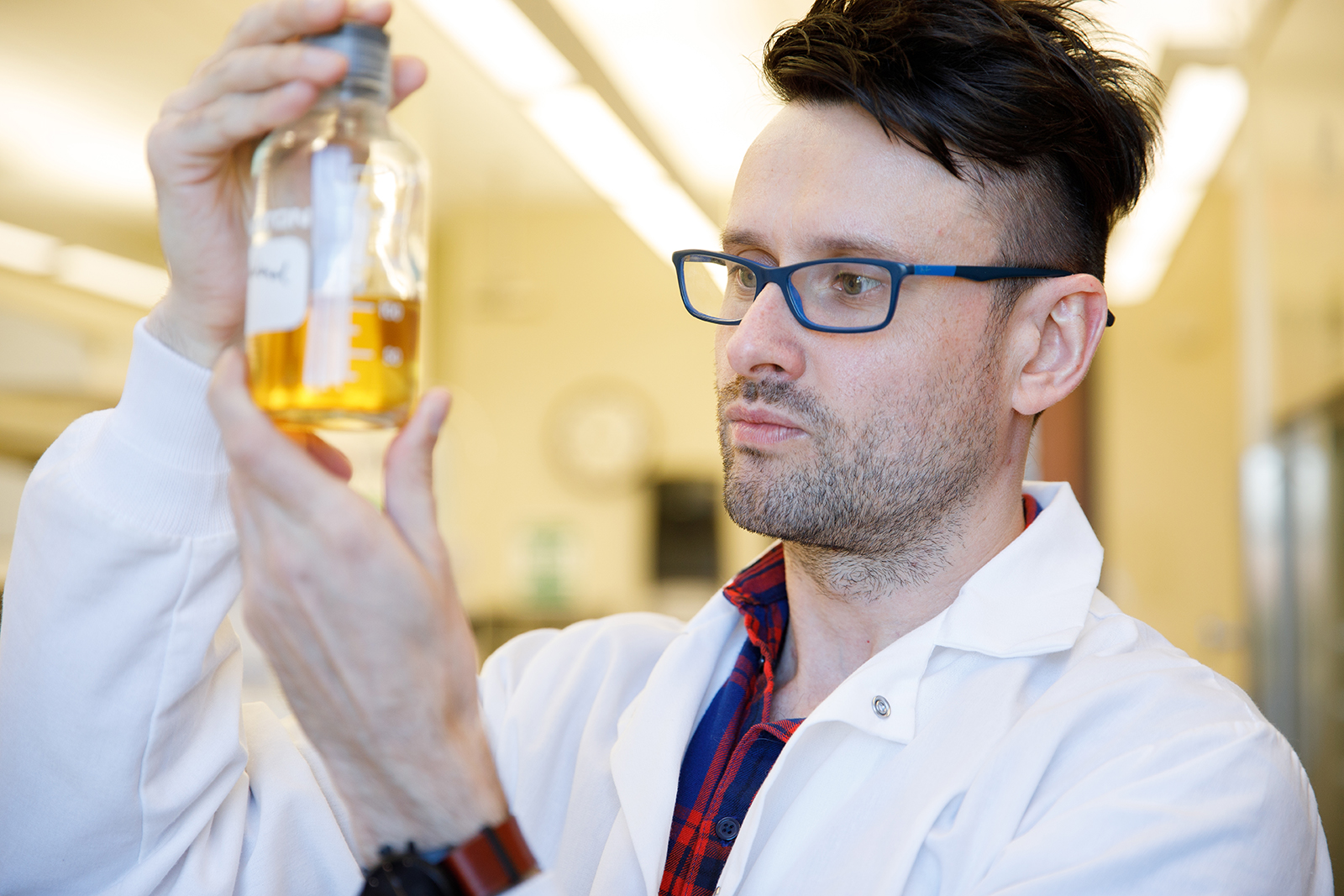
Better With Them
UA researchers are part of nationwide study to identify veterans struggling with suicidal thoughts.

UA researchers are part of nationwide study to identify veterans struggling with suicidal thoughts.

Researchers are using zombie-like cells that behave normally on the outside, but are filled with magnetic particles inside, to screen potential drugs from natural products.

The recent outbreak of measles in several parts of the nation has brought the once thought to be eliminated virus to the forefront of media and everyday conversation.

Researchers conclude that children’s play spaces can benefit from the inclusion of generic objects with few details as tools to promote object substitution and creative play.

A trio of students formed Ortho Screws, a start-up company based on a sensor designed to alert patients and health providers if orthopedic screws are loosening.

While helping small farms in Alabama, researchers at The University of Alabama and the University of West Alabama aim to help microgreens, young and tender vegetables packed with flavor and nutrition, extend their freshness after harvesting, along the way improving its value as both a food and agricultural product.

Researchers at The University of Alabama discovered how a common skin bacteria wards off viruses by leveraging cellular processes normally not considered part of any immune system. This discovery constitutes another milestone in understanding how to harness bacterial viruses to combat antibiotic-resistant infections.

Engineering researchers at The University of Alabama are working to improve powered-prosthetics by linking them with sensors in hopes of creating a prosthetic that seamlessly works with the rest of the body to become a partner in movement without the need for manual tuning.

Nearly 500 undergraduate students at The University of Alabama are highlighting their research and creative projects during the Undergraduate Research and Creative Activity Conference March 27.

Jessica Bentley’s experience with celiac disease helped her discover research opportunities that led to a published paper.